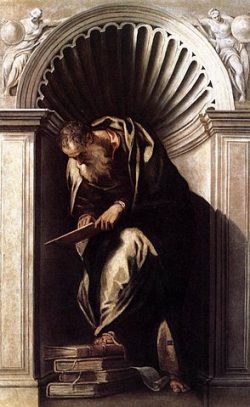Aristotle's Poetics
Note: This is another post originally published at Thermidor Magazine, in this case on March 21, 2017. Again, I’m posting this with only minimal editing.
Much of the process of moving politically Rightward consists in correcting the inadequacies of ones education. This process is most obvious in things like history or human biodiversity, but is certainly present in the arts, as well. Though a handful of books from the Western canon are still commonly covered in school, like Beowulf or The Odyssey, most curricula, even at the university level, fall far short of a comprehensive treatment. I majored in literature in college, and even aside from the cultural problem of being one of the few students truly passionate about this stuff, my formal education covered very little written prior to about 1800 aside from Shakespeare, and almost nothing not originally in English.

